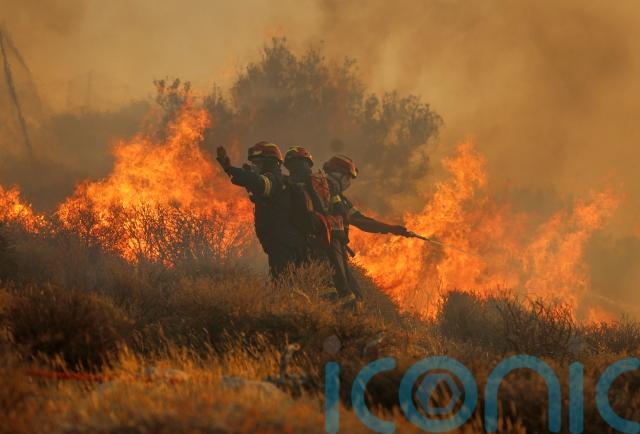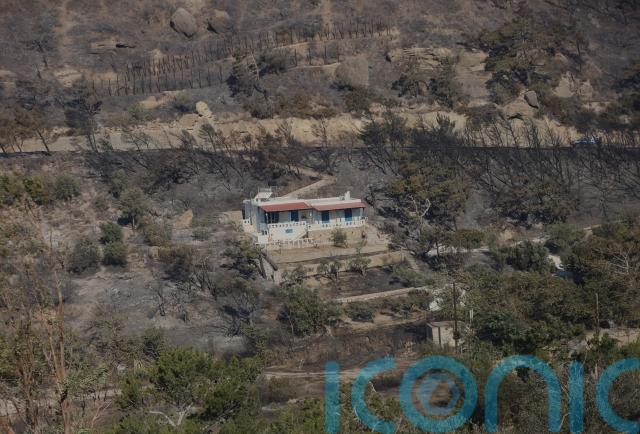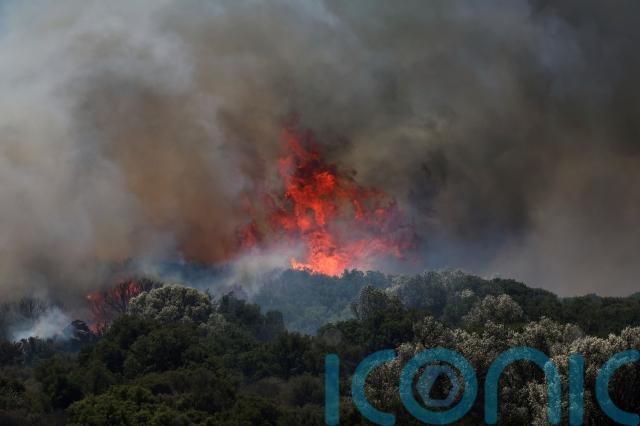
Firefighters have been racing to contain wildfires that forced thousands to flee holiday resorts on the southern Greek island of Crete, while neighbouring Turkey grappled with its own deadly blazes that claimed at least two lives.
More than 5,000 tourists, hotel workers and residents were evacuated from the Ierapetra area along Crete’s southern coast, authorities and hotel association officials said. A small number of people fled into the sea and were rescued by local fishermen and divers.
Ierapetra mayor Manolis Frangoulis said firefighters were working to prevent flare-ups and take advantage of a lull in high winds.

“Thankfully no one was hurt but it’s a difficult situation,” he said.
Displaced tourists were relocated to other hotels or spent the night in an indoor basketball stadium. Several homes and businesses were damaged.
Separately on Thursday, a wildfire near the port of Rafina, about 20 miles east of Athens, disrupted local ferry services to the islands.
Police went door-to-door to assist elderly residents while carrying out an evacuation order.

In western Turkey, a local forestry worker was killed while trying to contain a fire near the town of Odemis, and an 81-year-old resident died from smoke inhalation, authorities said. It marked the first fatalities in a series of wildfires that have forced thousands to flee.
Meanwhile, hundreds of firefighters, supported by aircraft and helicopters, were deployed to battle a wildfire near the Aegean coastal town of Cesme, a popular holiday destination about 120 miles west of Odemis.
That fire, which began on Wednesday, forced the evacuation of three neighbourhoods and led to road closures. Television footage showed flames racing through dry vegetation on both sides of a major road.
Over the past week, Turkey has battled hundreds of wildfires fuelled by strong winds, extreme heat and low humidity. Now mostly under control, the blazes have damaged or destroyed about 200 homes.

Summer wildfires are common in both Greece and Turkey, where experts warn that climate change is intensifying conditions.
Late Wednesday, Turkey’s parliament adopted a landmark climate law targeting net-zero emissions by 2053. The legislation includes measures to establish a carbon market board to oversee efforts to reduce greenhouse gas emissions.
The law comes at a time when Turkey is increasingly grappling with issues related to climate change, from searing heatwaves to prolonged droughts, experts say.
“As a Mediterranean country, Turkey is highly vulnerable to climate change,” said Gizem Koc, a lawyer with the UK-based environmental advocacy group ClientEarth.
“The most striking vulnerability is the drought and water stress in some regions, but also there is increasing frequency of floods and other extreme weather events.”
Subscribe or register today to discover more from DonegalLive.ie
Buy the e-paper of the Donegal Democrat, Donegal People's Press, Donegal Post and Inish Times here for instant access to Donegal's premier news titles.
Keep up with the latest news from Donegal with our daily newsletter featuring the most important stories of the day delivered to your inbox every evening at 5pm.